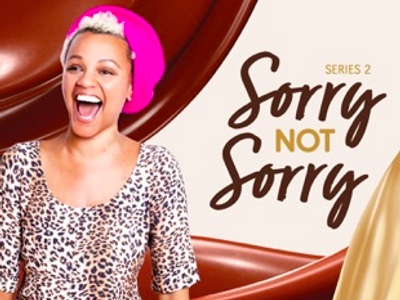By Elizabeth Brennan, UK Industry Client Director at Criteo
Us Brits are known for our over-apologetic nature.
When it comes to business, one thing I have noticed, especially as I move up the career ladder, is that many women in leadership roles feel the need to apologise for being assertive. However, there needs to be a point where we stop saying sorry for things that don’t warrant an apology. That doesn’t mean being rude or bolshie – but instead being confident that you have something to say that’s of value.
We’re thankfully seeing more women appear on industry panel discussions but it is during these events that I have noticed habitual apologising. Phrases like “Sorry I don’t agree with that” or “Sorry, can I finish my point?” are commonplace but wrong on so many levels.
In these situations, it seems culturally engrained in women of all levels to apologise when they actually mean “excuse me”, “please don’t interrupt me” or “I have a different opinion”. None of these alternatives are rude, offensive or remotely unprofessional. So why are we so prone to saying sorry, and perhaps more importantly, how can we stop?
Using language as a tool for empowerment
The “why” will have a multitude of different answers and everyone’s will be slightly different but many people use the S word to avoid conflict when most of the time, there really isn’t any need to. Healthy debate and professional conversation between peers (particularly at events and panels where the whole point is to exchange views) needs to be encouraged and nurtured.
But the “how to stop” is overtly trickier.
The issue is that this apologetic tendency is not only unnecessary, it can be damaging to the way people feel and are perceived by others. Simply put, saying sorry when there’s nothing to apologise for isn’t fair to yourself, and too often can lessen the power of the message you want to convey.
Professionally speaking, it’s essential that our language doesn’t put us in lesser or diminutive positions when there’s an important point or perspective to share. What’s more, it certainly shouldn’t demean the value of those perspectives before they’ve even been aired. Here simply asserting that your point of view is as important as anyone else’s and deserves to be heard could quickly expunge superfluous sorry-s from your vocabulary.
After all, language is a powerful thing and in the professional environment, everyone needs to ensure that they’re not using it to create an uneven playing field. Things are changing and there are some exceptional role models out there today from who we can all learn. The Drum’s list of 50 of the best female speakers is an excellent place to start but just the tip of the iceberg. These are people who have mastered the art of getting their point across without an accompanying, and unnecessary, apology.
As positive change continues, it’s important that those of us in more senior positions within an organisation are seen to be setting an example with the language we use and how we use it.
Don’t be sorry for who you are
I’ve already spoken about the need to embrace your personality type as part of your career development and assertiveness, an extrovert approach or even a challenging nature aren’t sorry-worthy traits. So whether you’re starting out in the workplace or in a leadership position, you need to believe that your viewpoints and opinions are of value. Putting them across in an eloquent and concise fashion is key. You don’t need to be sorry for that. It’s also OK to think our loud or to share a thought that isn’t fully formed. Acting with humility is different to acting as if you have something to apologise for and there shouldn’t be a sorry up your sleeve at all times.
Of course, there will be a time and a place for an apology and when that’s the case, no other word will do. But using it all the time or trivially erodes the true meaning and value of it. I for one won’t be apologising for being interrupted or simply to avoid any potential tension others might think come from two people seeing something differently! The best thing about honest discussion is forming a better or more informed option than you had before.
 About the author
About the author
Elizabeth Brennan is UK Industry Client Director at Criteo, the advertising platform for the open Internet. With nearly a decade of experience in digital advertising, Elizabeth worked initially in paid search before moving into planning and account management. She is a champion of women in business and a strong believer in the power of mentoring. A graduate of The University of Reading, Elizabeth is a former winner of the prestigious NABS Fast Forward award and has gone on to achieve Code First certification as part of the organisation’s initiative to increase the number of women in tech.









